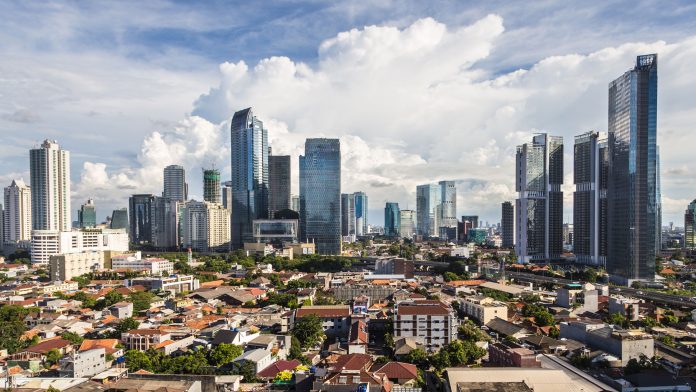The world of work has been transformed by the all-digital Fourth Industrial Revolution (Industry 4.0), and human resources have increasingly become vital for countries in the face of technological advancements such as automation, as well as external threats like the Covid-19 pandemic.
A comprehensive education system plays a central role in the development of a knowledge-based economy. From early childhood to higher education, the system shapes future generations, which in turn fosters the development of knowledge, technology and innovation.
To carry out this role successfully, both domestic and international schools and universities must collaborate with each other, as well as with industry at large, to ensure a strong connection with the workforce, supported by the capital of a highly capable and competent teaching staff.
As part of the Golden Indonesia 2045 vision to develop superior, innovative and competitive human resources, the government has allocated an education budget of 660.8 trillion rupiah, making up 20% of the 2024 state budget.
The budget is divided into a central government spending allocation of 237.3 trillion rupiah; transfers to regions through the general allocation funds, revenue sharing, special allocation funds and special autonomy funds of 346.6 trillion rupiah; and investment financing of 77 trillion rupiah.
Overall, the 2024 education budget is an increase compared with the 2023 education budget of 612.2 trillion rupiah. Finance Ministry director general of dudget Isa Rachmatarwata said strong efforts and commitment are needed in the efforts to answer current and future challenges.
The focus is also on universities, with the provision of higher education services supported by the budget continuing to increase year to year.
“Improving the quality of Indonesia’s human resources is emphasised in increasing the competence of teachers and education personnel, equalising the quality of education through increasing the distribution of teachers and educational infrastructure, and improving the quality of early childhood education centers,” Isa said.
In addition, the strategy seeks to increase access to education at all levels of education; improving the quality of infrastructure supporting educational activities, especially in underdeveloped, outermost and frontier regions; as well as strengthening the connectivity of vocational education with the job market.
“Through this budget, the Finance Ministry is also committed to expanding scholarship programmes, advancing culture, strengthening world-class universities, and developing research and innovation.”
The government has increased the budget for scholarships and social assistance for education to 35.94 trillion rupiah in 2024, up from 28.9 trillion rupiah in 2023. This increase is more than five times the scholarship budget for 2013.
According to Isa, the budget increase is meant to provide educational guarantees to the community from elementary to higher-education levels, so as to expand access to education. This is in line with the principle of President Joko Widodo’s government, that no citizen is left behind in obtaining the right to education.
“Scholarships and educational social assistance are realised through various efforts and assistance to schools and students, such as the educational unit operational assistance programme for schools,” he said. — The Jakarta Post/ANN





















